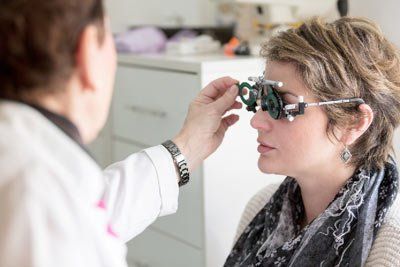5 Strategies for Recovering From Cataract Surgery
websitebuilder • September 13, 2017

You've lived with the hazy effects of cataracts for a while now, and you are looking forward to finally enjoying clearer vision again. Yet you still feel a little apprehensive about undergoing eye surgery since it is a new experience.
When your optometrist recommends corrective surgery for your cataracts, it is because your vision has reached the point where you will notice an improvement in your visual acuity within a few hours to days after your eye procedure is completed.
It is also reassuring to know that cataract surgery is a simple outpatient procedure that is finished in less than an hour in most cases. Since caring for your eye after surgery plays a big role in how well you heal, use these strategies to protect your vision throughout the recovery process.
Follow the Pre-Op Instructions
In most cases, your optometrist will only have a few pre-operative instructions to follow prior to your procedure. Usually, you will need to come in for a short visit a week or so before your eye surgery so that you can be fitted for the right sized lens implant.
As with any type of surgery, it is also best if you arrive well-rested. Abstain from stimulants such as alcohol and caffeine the night before. If your doctor recommends fasting before the surgery, then make sure to avoid eating and drinking during the recommended time period.
Arrange for Transportation Home
Some patients experience clearer vision right after their surgery is finished. However, the majority of people can expect to deal with mild blurriness that gradually improves over several days. This can interfere with your driving, so arrange for someone to drive you home on the day of your eye surgery.
Take It Easy the First Few Days
Having your cataract removed and replaced with a clear plastic lens can be deceptively simple since most people feel very little discomfort. Yet you will still need to treat your body with care to promote proper healing.
As your eye recovers, it is best to avoid placing any kind of pressure on your eye that could delay healing. Avoid bending over at the waist during the first day. It is also important to have someone else handle any heavy lifting, and do your best to avoid straining your facial muscles through forceful actions such as vomiting.
Use Your Medication as Prescribed
Once you are ready to go home, your optometrist will prescribe special eye drops that help prevent infection in your eyes. Usually, you will need to use these for about three weeks, but it could be longer if you heal slower than normal. Make sure to use these as prescribed because they help to hasten healing.
Watch for Signs of Complications
Having cataract surgery is fairly safe, and you won't even have stitches in your eye afterward. However, there is always the possibility of experiencing a complication such as an infection. Although you may experience some normal itching or soreness for a few days, you should report any unusual symptoms to your doctor.
Watch your eye for signs of a developing problem such as redness, excessive drainage or a sense that something is wrong. As a general rule, addressing complications early on gives you the best prognosis for resuming a successful recovery.
Attend Your Follow Up Visits
You should also expect to return to your optometrist for several follow-up visits. These visits are important for helping you prevent infections and check to see how your vision is improving. You may also be given new prescriptions for corrective lenses during this time.
At Hummel Eye Associates, cataract surgery is a common procedure that is performed in our office. For more information about what to expect before, during and after your surgery, contact us today.
